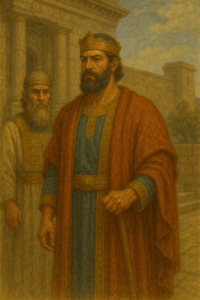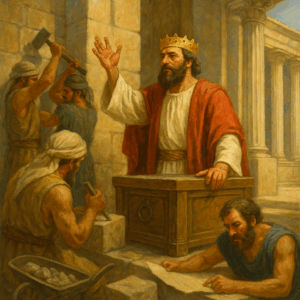As the narrative unfolds, God instructs Jacob to go back to Bethel and build an altar. This return is not just geographical but symbolic, marking Jacob’s recommitment to God. It’s here that God reaffirms His covenant with Jacob, renaming him Israel.
1. The Power of Remembering Our Origins
Bethel, for Jacob, was a place of divine encounter, a reminder of God’s promises and faithfulness. Returning there was a poignant moment of introspection and reconnection.
Modern Application: In our age of distractions and rapid change, it’s vital to occasionally pause, reflect, and remember the experiences that have shaped our journey. Whether it’s revisiting our childhood home, an alma mater, or simply engaging in introspection, such moments ground us and offer clarity.
2. Recommitting to Our Purpose
Jacob’s act of building an altar at Bethel was symbolic of recommitment. It was a tangible expression of his renewed dedication to God and the covenant.
Modern Application: There are times we drift from our core values, goals, or calling. Periodic moments of recommitment, be it in our careers, relationships, or personal aspirations, help realign us with our authentic selves and ambitions.
3. Establishing Personal Spiritual Landmarks
Bethel served as a spiritual landmark for Jacob—a physical reminder of a pivotal moment in his faith journey.
Modern Application: Creating personal milestones or markers can be invaluable. Whether it’s journaling, creating art, or celebrating anniversaries of significant life events, these “landmarks” serve as reminders of our growth, lessons learned, and the journey ahead.
Conclusion
Genesis 35, through the lens of Jacob’s experience, invites us to embark on a personal pilgrimage. As we navigate the intricate maze of modern life, may the lessons from Bethel inspire us to remember our origins, recommit to our purpose, and establish landmarks that echo the stories of our hearts.






